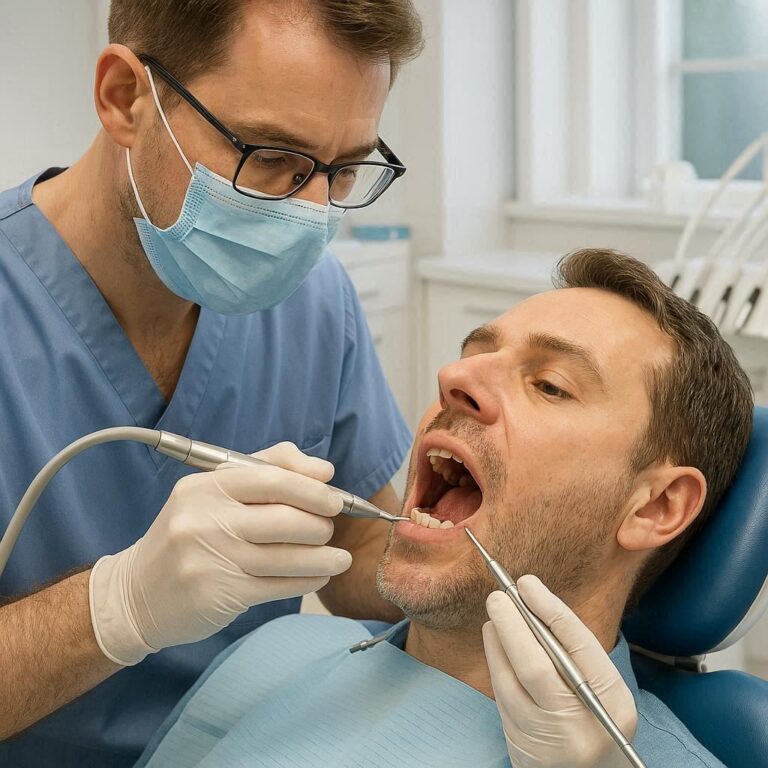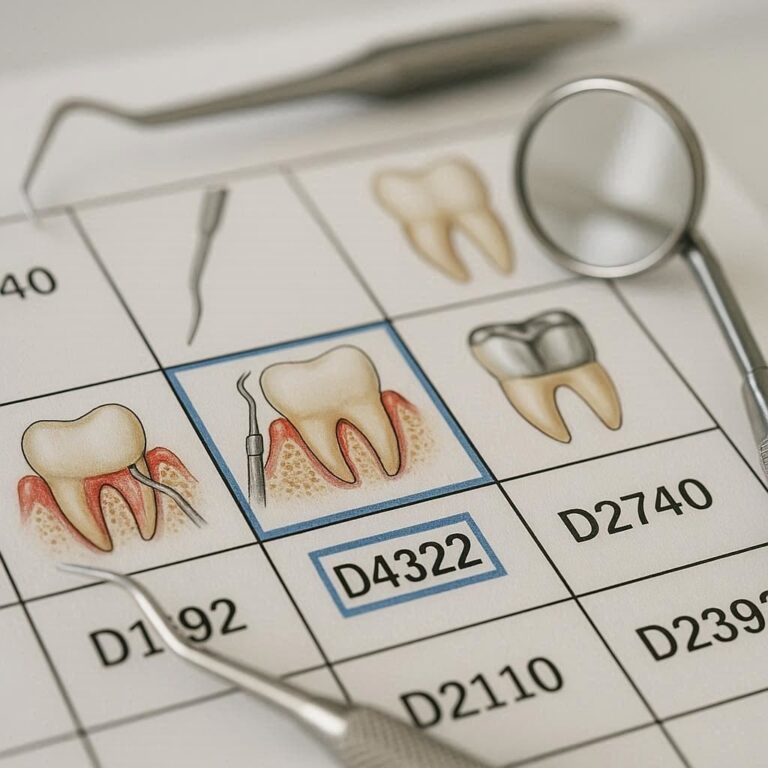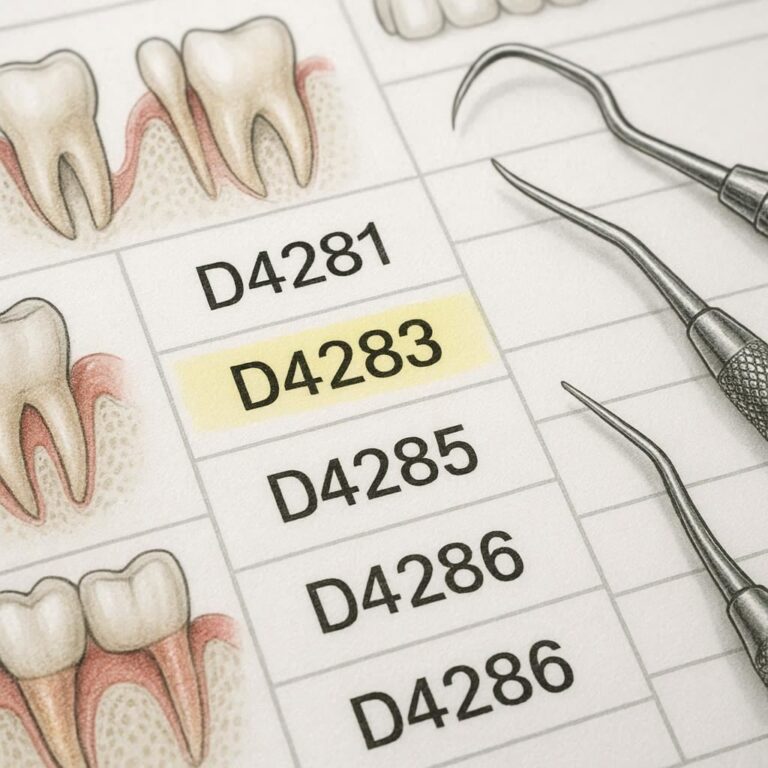The Ultimate Guide to Dental Recall Exams Codes, Importance, and Best Practices
Regular dental recall exams are the cornerstone of preventive dentistry, helping patients maintain optimal oral health while preventing serious dental issues. These exams allow dentists to detect early signs of cavities, gum disease, oral cancer, and other conditions before they escalate into costly and painful problems.
However, many patients—and even some dental professionals—are unaware of the specific dental codes (such as D0120, D0150, and D0180) associated with recall exams, leading to confusion in billing and insurance claims.

2. What Is a Dental Recall Exam?
A dental recall exam, also known as a periodic oral evaluation, is a routine check-up performed on established patients to assess their oral health status. Unlike a comprehensive exam (which is more in-depth and typically done for new patients), a recall exam focuses on monitoring changes since the last visit and ensuring no new issues have developed.
Key Features of a Recall Exam:
-
Review of medical and dental history
-
Visual inspection of teeth and gums
-
Oral cancer screening
-
Assessment of existing restorations (fillings, crowns, etc.)
-
Evaluation of periodontal (gum) health
-
X-rays (if necessary)
-
Professional cleaning (often performed by a hygienist)
3. Why Are Dental Recall Exams Important?
Regular recall exams provide numerous benefits:
A. Early Detection of Dental Problems
-
Cavities, gum disease, and oral cancer are easier to treat when caught early.
-
X-rays can reveal hidden issues like bone loss or impacted teeth.
B. Prevention of Major Dental Work
-
Small fillings prevent the need for root canals or extractions.
-
Gum disease caught early can avoid tooth loss and expensive treatments.
C. Cost Savings for Patients
-
Preventive care is far cheaper than restorative or emergency treatments.
-
Insurance often fully covers recall exams, reducing out-of-pocket expenses.
D. Improved Overall Health
-
Poor oral health is linked to diabetes, heart disease, and stroke.
-
Regular cleanings reduce harmful bacteria that can affect systemic health.
4. Common Dental Recall Exam Codes
Understanding dental codes ensures accurate billing and insurance reimbursement. Below are the most frequently used codes for recall exams:
| Code | Description | When to Use |
|---|---|---|
| D0120 | Periodic oral evaluation (established patient) | Routine check-ups every 6 months |
| D0150 | Comprehensive oral evaluation (new or established patient with significant changes) | For patients with new symptoms or after long absence |
| D0180 | Comprehensive periodontal evaluation | For patients with gum disease concerns |
Key Differences:
-
D0120 is for standard recall exams.
-
D0150 is for more extensive evaluations (e.g., new pain, trauma, or significant dental changes).
-
D0180 is for assessing gum disease progression.
5. Differences Between Periodic and Comprehensive Oral Evaluations
Many patients (and even dental staff) confuse periodic (D0120) and comprehensive (D0150) exams. Here’s how they differ:
| Feature | Periodic Exam (D0120) | Comprehensive Exam (D0150) |
|---|---|---|
| Patient Status | Established patient | New patient or significant changes |
| Frequency | Every 6 months | As needed (initial visit or major concerns) |
| Scope | Brief review of existing conditions | Full-mouth assessment, including diagnostics |
| X-rays | Only if necessary | Often included for baseline records |
6. How Often Should Patients Schedule Recall Exams?
The American Dental Association (ADA) recommends:
-
Every 6 months for low-risk patients.
-
Every 3–4 months for high-risk patients (smokers, diabetics, gum disease history).
Factors Influencing Recall Frequency:
✔ Medical conditions (e.g., diabetes, heart disease)
✔ History of cavities or gum disease
✔ Tobacco/alcohol use
✔ Orthodontic treatment
7. Key Components of a Dental Recall Exam
A well-structured recall exam includes:
A. Medical & Dental History Update
-
Changes in medications, health conditions, or symptoms.
B. Visual & Physical Examination
-
Teeth, gums, tongue, cheeks, and throat inspection.
C. Oral Cancer Screening
-
Checking for lumps, red/white patches, or sores.
D. Periodontal Assessment
-
Measuring gum pockets (if gum disease is suspected).
E. X-rays (If Needed)
-
Bitewings every 12–24 months, full-mouth series every 3–5 years.
F. Professional Cleaning (Prophylaxis)
-
Plaque and tartar removal to prevent decay and gum disease.
8. Insurance Coverage and Reimbursement for Recall Exams
Most dental insurance plans cover:
-
Two recall exams per year (D0120).
-
Cleanings (D1110) and necessary X-rays.
Common Insurance Challenges:
-
Denials for “too frequent” exams → Ensure proper documentation.
-
Downcoding (D0150 billed as D0120) → Justify with clinical notes.
9. Best Practices for Dentists Performing Recall Exams
To maximize efficiency and patient satisfaction:
-
Use digital records for quick updates.
-
Train staff on proper coding to avoid claim rejections.
-
Educate patients on the importance of recalls.
10. Patient Communication and Recall Strategies
-
Automated reminders (text/email).
-
Loyalty programs for consistent patients.
-
Clear explanations of treatment needs.
11. Common Challenges and How to Overcome Them
| Challenge | Solution |
|---|---|
| Patient no-shows | Confirm appointments 24–48 hours prior |
| Insurance denials | Submit detailed clinical notes |
| Low patient compliance | Educate on long-term benefits |
12. The Future of Dental Recall Exams
-
AI diagnostics for early decay detection.
-
Teledentistry for remote consultations.
-
Personalized recall schedules based on risk factors.
13. Conclusion
Dental recall exams are essential for maintaining oral health, preventing major issues, and reducing long-term costs. By understanding the correct codes (D0120, D0150, D0180), optimizing recall strategies, and educating patients, dental practices can improve compliance and outcomes.
14. FAQs
Q1: How often should I get a dental recall exam?
A: Most patients need one every 6 months, but high-risk individuals may need visits every 3–4 months.
Q2: Does insurance cover recall exams?
A: Yes, most plans cover two exams per year (D0120).
Q3: What’s the difference between D0120 and D0150?
A: D0120 is for routine check-ups, while D0150 is for more extensive evaluations.


